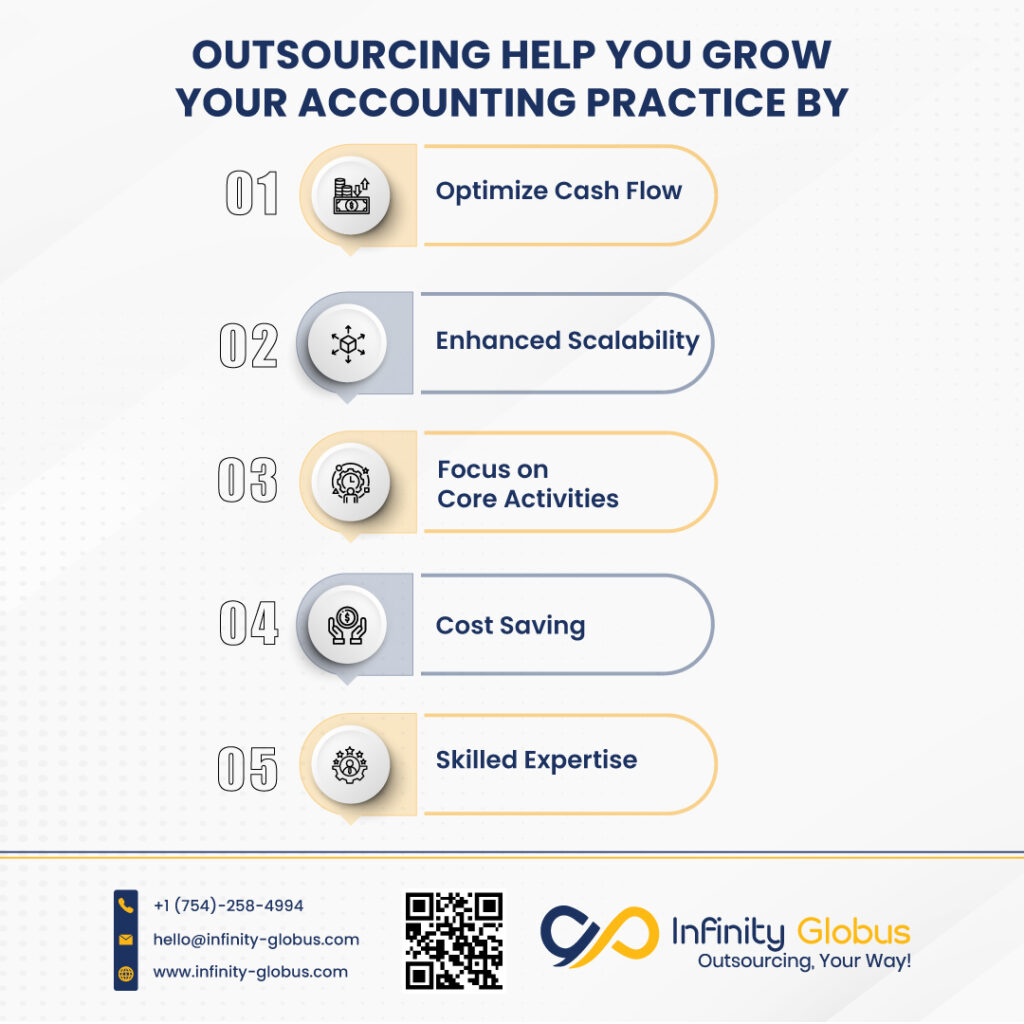Succentrix Can Help You Start an Accounting Practice and Develop Your Client Base
Succentrix Can Help You Start an Accounting Practice and Develop Your Client Base
Blog Article
Top Fads Forming the Future of Accountancy Practices
As the accountancy sector proceeds to evolve, numerous pivotal patterns are emerging that pledge to redefine traditional methods. The assimilation of synthetic knowledge, the focus on automation, and changes towards remote work are improving the landscape, while sustainability efforts and enhanced information analytics are driving new criteria of accountability.
Rise of Artificial Intelligence
The rise of expert system (AI) in audit techniques marks a substantial change in the market, driven by the requirement for better effectiveness and precision. AI innovations are increasingly being integrated into audit software, enabling companies to automate regular jobs such as information access, invoice handling, and monetary reporting. This transformation enables accounting professionals to concentrate on higher-value activities, such as critical planning and consultatory services.
Moreover, AI boosts the precision of financial evaluations by decreasing human error and improving information stability. Maker knowing algorithms can analyze large quantities of information to identify patterns and trends, providing insights that were previously unattainable. This ability not just improves decision-making yet also permits real-time economic tracking.
The application of AI in audit likewise cultivates improved conformity with regulatory criteria, as AI systems can be configured to flag inconsistencies and make sure adherence to economic laws. As firms embrace these modern technologies, the role of accountants is developing from traditional bookkeeping to ending up being critical companions within companies, geared up with innovative analytical abilities. Generally, the rise of AI in bookkeeping is redefining the career, leading the way for a much more ingenious and responsive monetary landscape.
Emphasis on Automation
Just how can automation reshape the bookkeeping landscape? The integration of automation into bookkeeping methods is fundamentally modifying just how economic data is processed, analyzed, and reported. By simplifying repeated jobs such as information entrance, reconciliation, and invoicing, automation enables accounting professionals to concentrate on higher-value activities, such as strategic decision-making and advising services.
The fostering of automation modern technologies, including robotic procedure automation (RPA) and cloud-based services, boosts precision and lowers the probability of human error. Real-time information handling empowers organizations with prompt insights, making it possible for even more aggressive economic management. Furthermore, automated systems facilitate conformity by making sure that regulations are consistently satisfied through built-in controls and audit routes.

Remote Job Change
As automation improves traditional audit practices, the increase of remote work is additional changing the landscape of the occupation. The COVID-19 pandemic increased a change in the direction of flexible work arrangements, compelling accountancy companies to embrace brand-new innovations and interaction tools to preserve efficiency and client engagement. This shift has allowed firms to access a broader skill pool, as geographical constraints decrease.
Remote job has likewise prompted a her explanation reevaluation of operations and the execution of cloud-based options. These innovations facilitate real-time cooperation, making it possible for teams to function seamlessly throughout different places. Because of this, accounting professionals can supply solutions much more successfully and react to client needs quicker.
Moreover, the emphasis on remote job has driven a cultural change within organizations, stressing work-life balance and worker wellness (Succentrix can help you start an accounting practice). Companies that embrace this adjustment are likely to attract and maintain leading talent, promoting an atmosphere of development and adaptability
Nevertheless, the remote work model also offers obstacles, such as keeping information safety and ensuring compliance with regulatory criteria. As the accountancy career remains to develop, firms have to browse these complexities while making best use of the benefits of remote work, inevitably resulting in a more resilient and agile industry.
Sustainability in Accountancy

The emergence of sustainability accountancy requirements, such as the Worldwide Coverage Effort (GRI) and the Sustainability Accounting Specification Board (SASB), has provided structures that assist companies in gauging and disclosing their ESG efficiency. This not only improves reliability yet also promotes depend on among investors and consumers who prioritize lasting methods.
Furthermore, companies are increasingly taking on incorporated reporting, which combines financial and non-financial information to provide an all natural sight of organizational efficiency (Succentrix can help you start an accounting practice). This technique allows stakeholders to assess the long-term stability of a firm, aligning monetary success with lasting methods
As audit professionals embrace sustainability, they play a pivotal role fit business method, fostering innovation, and check it out advertising responsibility. Eventually, sustainability in audit is not just a fad; it is a vital element of contemporary service approach that drives resilience and long-lasting success.
Boosted Data Analytics
The expanding focus on sustainability in audit has led the way for enhanced data analytics, which is changing exactly how organizations handle and translate financial info. Succentrix can help you start an accounting practice. By leveraging sophisticated analytical tools, companies can currently look with huge amounts of data to remove insights that drive strategic decision-making and improve operational efficiency
Enhanced data analytics enables accounting professionals to relocate beyond traditional reporting techniques, providing real-time data visualization and predictive analytics that help with proactive management of economic wellness. This shift not only sustains much better conformity with sustainability laws however also straightens with stakeholder needs for transparency and accountability.


As bookkeeping techniques progress, the function of information analytics will be crucial in cultivating an extra lasting and resilient monetary environment. Organizations that embrace these improvements will acquire an one-upmanship, positioning themselves as forward-thinking leaders in the industry.
Verdict
Finally, the future of accountancy techniques is being dramatically influenced by improvements in synthetic knowledge, automation, remote work, sustainability, and enhanced data analytics. These patterns not only enhance efficiency and accuracy yet additionally reshape the function of accountants from traditional jobs to critical advising positions. Accepting these advancements will encourage companies to click for source adjust to an evolving landscape, making certain strength and success in an affordable environment. The ongoing integration of these elements will define the bookkeeping profession's trajectory.
Report this page